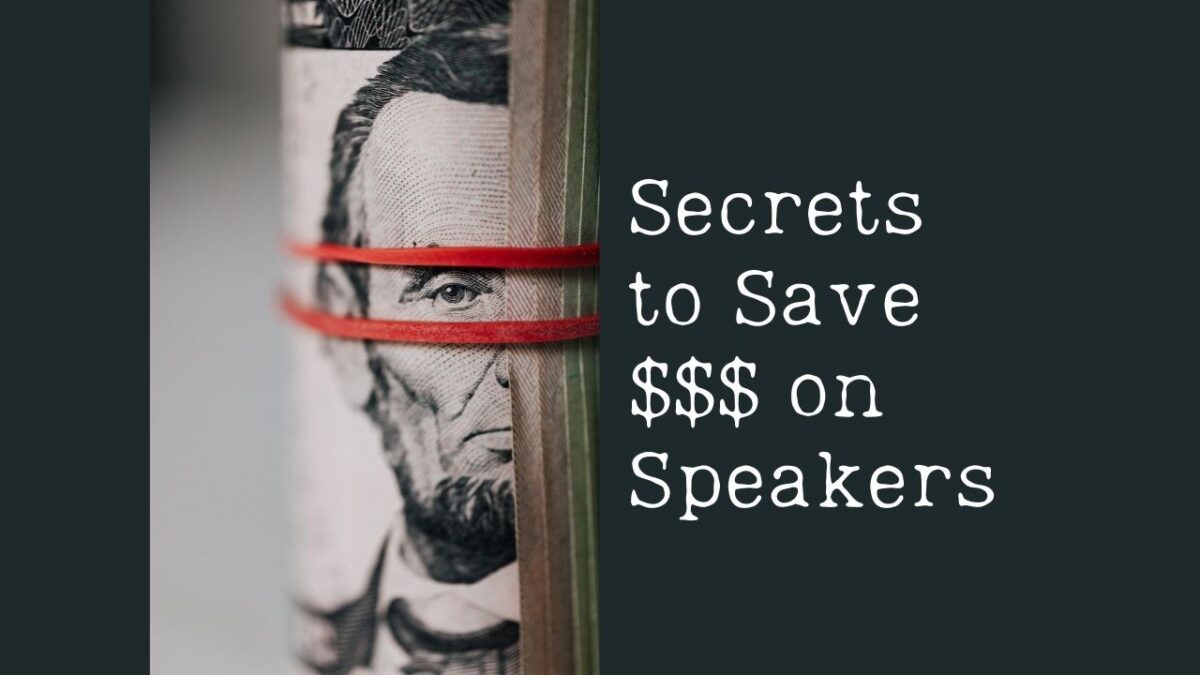SHOW ME THE MONEY!
Have you ever wanted to bring an amazing speaker to your campus on a topic like alcohol & drugs, leadership, sexual health, diversity, or mental health… only to find out you didn’t have enough budget? What can we do when we don’t have funds available for bringing in new programs or speakers?
The good news is there are plenty of ways to still make it happen! Some are simple, and some require more work. But I guarantee that if you want to help your students, plenty of great people would LOVE to partner with you and make it happen!
The secret to saving money so you can afford any presentation (on any budget) is first to realize what you can offer to that speaker… or anyone else who would benefit from the presentation.
As a collegiate alcohol awareness speaker, I have compiled a few strategies I’ve used to help colleges and universities save thousands of dollars on speaking fees and programs just like mine. I’ve even interviewed my other friends who are speakers, and clients in higher education to see what they’ve done too.
CAUTION: By using these tips you may easily save hundreds (if not thousands) of dollars on professional speakers. This may lead to overwhelming joy, sense of accomplishment and positive impact on your campus. Use carefully 😉
1. Show ’em Off
There’s a little work for this one, but with only 30 minutes and very little effort, you create some REAL leverage.
All you have to do is invite your friends and colleagues to the event. They’ve got to be the ones who have power to book speakers though. It might be other departments on campus, or people you met at a conference or association who do the same job as you.
If it’s NOT feasible to invite people others to the actual event say, “I’ll be happy to send an email introduction between you and my colleagues who also book speakers.”
Get creative too… who else could help their careeer? Maybe you know a book publisher, someone in television/media, or another influential person in their field.
That speaker’s marketing objectives are to meet people who can book them. So if you’re introducing them to potential new clients, that’s valuable. You should feel confident about trading that for a discount.

2. Split Line Items
Motivational speakers and educational speakers often have to charge a certain amount to leave their families, make a cross-country trip and create an impactful event for your audience. If you don’t have enough funds in one budget line-item, try looking at what other categories you have.
For example, you might have budget lines for promotional items, printing or educational materials. So if the speaker has a book, you could say “What if I paid you ‘X amount’ for the speaking fee and bought ‘X amount’ of books for the crowd? Would that give you enough profit to work with us?”
This strategy can ensure a triple-win! Here’s how… 1) The speaker still makes the same profit from the time, preparation and work. 2) You’ve split the cost between two budget line items so you can now afford them. 3) The audience gets a free gift from your event.
Some popular products you can ask about are books, curriculum, video courses, or branded merchandise.
3. Book ’em Early
Not only does the early bird get the worm… in this case “the worm” is the speaker you want for the exact date of your event. But the early bird saves some dough too!
If you book a speaker too late, the last-minute travel costs and rushed deadlines for preparation will mostly likely push the price way up.
Save money on your professional speaker by showing interest and reserving your date early. They may even have an early booking discount built into their rates.
Even if you don’t have all the details finalized, just calling or emailing the speaker and telling them you’re interested can lead to some favors, deals, or having your ideal date reserved on their calendar.
4. Collaborate (Split the Cost)
Universities are like huge communities with all types of organizations, clubs and departments. Many of them have resources to address certain topics, and it’s amazing when you can partner up to save time, money and work hours for everyone.
In my case, when it comes to alcohol, cannabis, vaping and other drug education, there are a lot of people on campus who care about this topic.
I’ve found that the key people to ask are the Dean of Students, Orientation, Greek Life, Athletics, AODA and Health & Wellness Promotion. Your campus might even have a task force or campus police that want to help.
Who are the other people on campus who might have budget set aside to address this particular issue you’re hiring a speaker for?
5. Press Record
Speakers are always looking for footage and pictures of their work so they can update their marketing assets. It can also help them improve their craft by watching their performance as the audience does.
Videographers and photographers cost hundreds, if not thousands of dollars to hire. So if you have access to talented students or professionals, that can be leveraged to lower their fee.
Check with your film or media departments, student newspaper, photo/video clubs, or personal network.
Although this requires a bit of searching and communication, the great thing is that your school is filled supportive staff and talented students who would probably love to help!
6. Catch Some Headlines
Getting on the news or in other media outlets is basically free promotion for any business!
If your speaker is a savvy marketer, they will see any opportunity for news coverage as a way to build credibility, increase SEO, enhance their brand and reach potential new followers.
Media outlets are always looking for cool new stories and people of interest.
So contact them, let them know who you’re bringing to campus, and invite them to do an interview with your speaker.
If you’re confident that you can get press for the event, mention that when asking to decrease the price.
7. The Bucket List
Speaker’s travel to a lot of places, but rarely get to take advantage of the things you might do when visiting a new place.
Is there something cool they could do in your town? Ask if they have any hobbies or bucket list items.
An extra plane ticket for their spouse and an experience could be worth thousands to someone!
Many attractions would happily donate a ticket or experience to a university. Especially if it’s helping make an impact on students and you thanked them publicly at the event.
8. Block-Book
Speakers often travel from out-of-state so they like to make the most of their time and travel.
If you can get other schools on board, they can visit multiple universities in one trip! That’s a lot better than making separate trips, with each having its own flight, hotel and car rental.
Contact administrators and staff from other colleges in your area to see if they’re interested in addressing that topic you are (ie. black history month, leadership, alcohol awareness). You can even try local high schools if the speaker works with younger audiences as well.
Although it takes some work to contact nearby schools and coordinate dates that work for all interested parties, sometimes the savings can be in the thousands for each of you!
9. Ask a Donor/Sponsor
Did you know there are clubs for adults? And many of them are filled with individuals who care about youth and their community!
With a little preparation and research you can share a program or cause with them to ask for funding.
Some great civic and community organizations to ask are Rotary, Kiwanis, Elks Club, United Way and the YMCA. You can also google your city name paired with “community foundation” and contact them for more help with this one.
Don’t be shy to ask “for-profit” businesses either. They might benefit from getting in front of students and offer to partner with you as well.
*This strategy has brought in tens of thousands of dollars for bringing Party.0 peer-led sober parties and our alcohol & drug presentations to new schools.
10. Grant Funds Available
The appeal of grants is that you can bring in thousands of dollars at a time.
It’s tough for people who dislike writing and research, but if you have someone who enjoys those things – see if they’ll help you write grant proposals for your department or organization.
The rewards can be a few thousand dollars, all the way to hundreds of thousands with multi-year benefits.
Check with your local and state departments, non-profit organizations and community foundations for grant opportunities. There might be money sitting around, marked for someone like you!
How to Talk with College Students about Drugs & Alcohol Use
The problem of Alcohol Consumption and Binge Drinking in College-Age Students According to the National Institute on Alcohol Abuse and Alcoholism, alcohol is the most

10 Tips to Save Money on College Speakers
SHOW ME THE MONEY! Have you ever wanted to bring an amazing speaker to your campus on a topic like alcohol & drugs, leadership, sexual

How to stay safe over the Fourth of July holiday
Fourth of July is a time to celebrate the independence of the United States! However, this holiday weekend can also be one of the most

